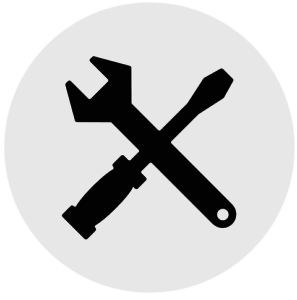A skills gap is likely to leave 2 million manufacturing jobs unfilled over the next eight years, leaving many manufacturers concerned about the future of their industry. Although robotics and other technological advancements are making an impact, educated and well-trained manufacturers are still necessary to operate these and perform additional tasks on the plant floor. As today’s workforce ages and fewer skilled workers line up to replace them, how can industry professionals find workarounds?
New industry and higher education partnerships are necessary to recruit and train the next generation of high-tech manufacturing professionals on the skills they need — and will need as manufacturers implement new technologies to streamline and make their businesses safer and more efficient. Not only does this ensure employers have access to workers with the required skills but students who take part in these partnerships also have the opportunity to get a foot in the door and a leg up on career competition.
Career skills
 What can students learn in these classes? For those coming from outside the industry, maintaining, troubleshooting, and improving machines are just a few necessary skills. According to an Impo article, “there were 322,759 job postings for industrial technology maintenance jobs between 2015-2016, but only 26,152 graduates in related training or post-secondary programs. This skills gap coupled with the fact that 58% of the current industrial technology maintenance workforce is approaching or has surpassed retirement age puts increasing pressure on manufacturing employers, particularly those in states along the Midwest auto-corridor.”
What can students learn in these classes? For those coming from outside the industry, maintaining, troubleshooting, and improving machines are just a few necessary skills. According to an Impo article, “there were 322,759 job postings for industrial technology maintenance jobs between 2015-2016, but only 26,152 graduates in related training or post-secondary programs. This skills gap coupled with the fact that 58% of the current industrial technology maintenance workforce is approaching or has surpassed retirement age puts increasing pressure on manufacturing employers, particularly those in states along the Midwest auto-corridor.”
Partnership
In one partnership, the National Institute for Metalworking Skills (NIMS), Lightweight Innovations for Tomorrow (LIFT), and Ivy Tech Community College are offering skills training as well as credentialing scholars in nine new standard areas. Training will include basic mechanical, hydraulic, and pneumatic systems; electrical, electronic control, and process control systems; as well as operations, welding, and piping maintenance, all taught by community college instructors.
For those in the partnership, this isn’t new.
- Members of the LIFT public-private manufacturing and metalworking partnership have been pushing to advance manufacturing technologies since LIFT’s debut in 2014. The partnership’s high standards require workers to be technology-versed, process-knowledgeable, and maintenance-savvy as LIFT’s mission includes rapid technology developments.
- NIMS members have been setting industry skills standards since they formed the group in 1994, accrediting training programs that meet these standards and working to build and maintain a strong American metalworking force.
- Ivy Tech is a collection of community colleges in Indiana where personnel have been instructing students in technical and vocational studies since 1963.
Steps forward
According to the Deloitte and Manufacturing Institute report, manufacturers must “renew a fierce focus on talent management, coupled with positioning the industry as a viable career option, in order to mitigate the impact of the skills gap, both today and in the future.” With the skills future employees need to advance in the field and with the knowledge and ability to apply it as manufacturers need, partnerships can be win-win situations.
 Even with the well-trained and educated employees, machines can still break down. Call the experts at Global Electronic Services for all your industrial electronic, servo motor, AC and DC motor, hydraulic and pneumatic needs.
Even with the well-trained and educated employees, machines can still break down. Call the experts at Global Electronic Services for all your industrial electronic, servo motor, AC and DC motor, hydraulic and pneumatic needs.